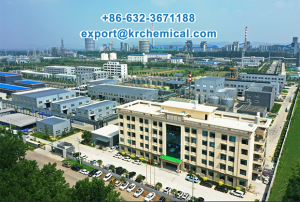Inhibited hydrochloric acid, often referred to as inhibited HCl, is a type of hydrochloric acid solution that contains additives or inhibitors to modify its properties and behavior. The inhibitors are added to control the aggressive nature of hydrochloric acid and make it safer to handle and use in various industrial applications. The main functions of inhibited hydrochloric acid include:
- Corrosion Inhibition: One of the primary functions of inhibitors in hydrochloric acid is to reduce its corrosiveness toward metals. Hydrochloric acid is highly corrosive and can rapidly attack many metals, causing damage to equipment and infrastructure. Inhibitors form a protective layer on the metal surface, preventing direct contact between the acid and the metal and thereby reducing corrosion rates.
- Scale Inhibition: It may contain additives that help prevent the formation of scale or mineral deposits during acid cleaning processes. Scale formation can reduce the effectiveness of acid treatments and lead to operational issues in industrial equipment such as pipelines, heat exchangers, and boilers. Scale inhibitors in inhibited HCl prevent the precipitation of minerals and help maintain the efficiency of cleaning processes.
- Foam Suppression: Some inhibited hydrochloric acid formulations include foam suppressants to minimize the formation of foam during acid treatments. Foam can interfere with the distribution of acid within a system, reducing its effectiveness and potentially causing safety hazards. Foam suppressants help to control foam formation, ensuring uniform acid distribution and improving treatment efficiency.
- Temperature Stability: Inhibitors may enhance the stability of hydrochloric acid solutions at elevated temperatures, allowing them to maintain their effectiveness over a wider range of operating conditions. This is particularly important in industrial processes where acid solutions are heated for cleaning, descaling, or other applications.
- Safety: Inhibited hydrochloric acid formulations are designed to improve safety by reducing the risks associated with handling and using concentrated hydrochloric acid. By mitigating corrosion, scale formation, and foam generation, inhibitors help minimize equipment damage, environmental hazards, and potential safety incidents.
Overall, inhibited hydrochloric acid plays a crucial role in various industrial processes where acidic cleaning, descaling, pickling, or etching is required. The addition of inhibitors enhances the performance and safety of hydrochloric acid solutions, making them more suitable for a wide range of applications in industries such as chemical manufacturing, metal processing, oil and gas production, and wastewater treatment.

